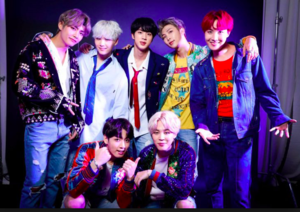Wealth and poverty
Descrição

|
Criado por Lakshana Baheerathan
mais de 7 anos atrás
|
|
Resumo de Recurso
Página 1
PovertyThe state of being extremely poor and the state of being inferior in quality or insufficient in amountThere are 2 types of PovertyRelative Poverty relates to what a particular society considers to be poor. e.g someone in the UK might be considered to be relatively poor if they live on less than the average UK income.Absolute Poverty is when someone does not have access to basic human needs e.g water, clothing, education and shelterRelative Poverty lack of education and access to technology crowded homes inadequate amounts of food inadequate and cheap clothing limited to gas and electricity dependent on food banks and other services homelessness social pressure crime Absolute Poverty no family and therefore no support no access to basic human needs vulnerable to abuse and crime no medical services no education no sanity and hygiene Main Causes of Poverty Location: whether or not an area has a natural resource (e.g oil) to sell and raise its economy. Saudi Arabia has bad weather conditions but the large oil reserve there gives it a good source of income. Countries like Sudan that have bad weather conditions and don't have natural resources to sell are quite poor as it has an unstable source of income. Climate: Rainfall is needed for the growth of crops. Insufficient rain causes crops to fail. This means exportation will be low and the cycle of poverty cannot be broken. Less rain also means less water to drink and LEDCs don't have enough money to build the infrastructure (e.g a damn) to collect and store water. Economic Reasons: World Trade- Crop producers sell their crop to the country that is willing to pay the most amount of money. LEDCs can't afford these prices and depend upon themselves. Natural Disasters: People in LEDCs tend to be less educated and therefore are unaware of the procedures taken before and after a disaster. The communication systems may be underdeveloped. Homes, roads and infrastructure are weak, plain and simple. Services are not the best. They also have no access to medicine if water borne diseases are caught Corruption: The money sent to LEDCs sometimes not reach the poor. Debt: All debt have an interest charged onto it. LEDCs can't even pay the original amount, let alone the interest which continues to increase Unfair: Farmers in LEDCs do not receive a fair price for what they produce. If something happened to the crops, the retailer's profit does not suffer as they increase the price, which we pay, however, farmers profits do, they receive a smaller cut War: War increases the problems of debt for poor countries.The money funding weapons should have been spent on food production. If people who usually work as farmers are fighting wars, they cannot grow and harvest food. Fair TradeIs a trade between companies in developed countries and producers/farmers in LEDCs in which fair prices are paid for them.Christianity and Wealth Immoral to trade weapons- gaining from others death You have to pray, be charitable and campaign Immoral t exploit Religious Evidence and the beliefsMark 12:30-31 You should treat others the way you want to be treatedExodus20:8You should work for the 6 days but on the Sabbath day you must refrain from money and commit to GodJams 2:14 You must apply your faith, otherwise, it is meaninglessGood Samaritan...Helped the Jew even though their religions are against each other. ''Love your neighbour''Rich man and LazarusLazarus begged at the rich man's front door every day. When Lazarus died he went to heaven but the rich man when to hell. Having money is not the sin, but using it selfishly and not helping others is. This can be further shown in Matthew 25:30-36'- it's about seeing God in everyoneIt is easier for a camel to fit throughout the eye of a needle than a rich man to go to heavenIf your Richard you haven't used your wealth to help others you will not go to heaven. The way you use your wealth is important. You haven't earned your placeDon't store up your treasures on Earth, store them in heavenYou can't take your money with you when you die. Earn your place in heaven by loving and obeying God.Praying Reflects a belief for an omnipotent, omnibenevolent and omniscient God Reflect a belief for God's active role in the world Shows your desire for change Shows your faith Recognising common bonds Charity Immediate Relief Can be seen on a large or personal basis Helping others is like helping Jesus; Being a good Christian is about practical help otherwise, your faith is meaningless It can include non-religious people/atheists Campaign Change on a larger scale Puts pressure on the government Changes fundamental beliefs and attitudes Involves non-religious people too Wealth and poverty in IslamIslam teaches that wealth and riches come from Allah (God) and are intended for the benefit of all humanity. At the centre of Muslim's belief about wealth is Zakah (purification of wealth by a payment of welfare due). Every Muslim has a duty to pay Zakah as it is the Third Pillar of Islam.It's an act of worship.Muslims believe that poor people have the right to share the wealth of the rich. Zakah is kind of like a tax that ensures thisIslamic governments take the money from Zakah and share it with the needy. They collect and distribute the money.Zakah is not charity but it is an obligationZakah purifies the poor because it means that they can not be tempted to get jealous.Similarly, the poor are helping the rich who give Zakah to store up riches with Allah and so give them a path to heaven
Página 2
Quer criar suas próprias Notas gratuitas com a GoConqr? Saiba mais.
